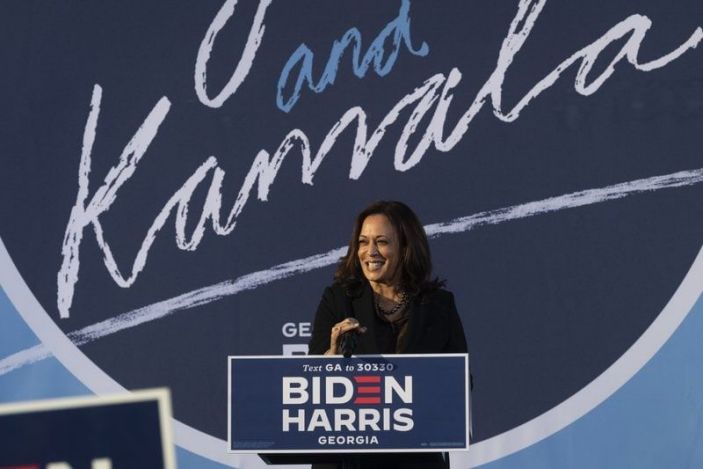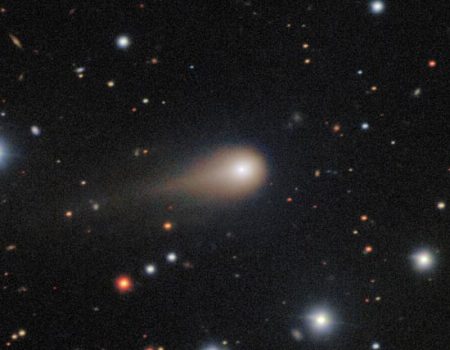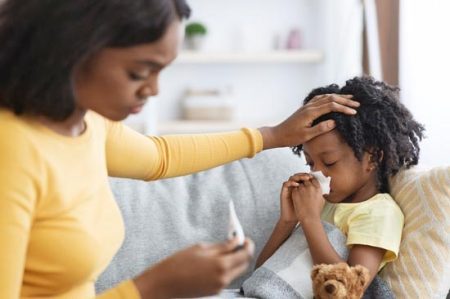Kamala Addresses Black Men’s Concerns

Vice presidential nominee Kamala Harris was confronted with a question on an issue that’s sparked much concern among Democrats in the closing stretch of the race for the White House.
The query came from music mogul Jermaine Dupri, who asked what she tells those worried about her background as a prosecutor who “put a lot of Black brothers away in your past.” During her first visit to Atlanta since joining the Democratic ticket, Harris answered with an extended monologue aimed squarely at President Donald Trump’s attempts to woo Black men.
“Yes, I decided to go up the rough side of the mountain, as we say in church,” Harris told him, framing her career choice as a conscious decision to change a “flawed” system from within. She rattled off several efforts, describing a reentry program that she said steered young men arrested or convicted of nonviolent drug offenses into jobs. “They referred to my program as a ‘hug a thug’ program,” she said.
Harris acknowledged she didn’t “change the whole system,” but pushed back on the criticism. “It suggests Black people shouldn’t be prosecutors. … It suggests that you don’t love your community, or you don’t want to reform the system if you decide to go in it.”
“I’m not going to tell anybody, including Black men, that they’re supposed to vote for us. We need to earn that vote,” Harris told a roundtable of Black men in one of several stops across Atlanta, the Democratic base of Georgia, an emerging battleground state.
The California senator warned that Trump wants to “turn 20% of Black men in favor of him,” a mark that could tilt a range of battleground states in the South and Upper Midwest to the president. But Harris, the first Black woman on a major party’s national ticket, said Trump’s pitch is rooted in “spinning” and misrepresenting her record and the Democratic ticket’s proposals.
“Joe Biden has the ability to say the words ‘Black Lives Matter,’ unlike that other fella,” Harris told a group of students from Atlanta’s historically Black college campuses.
Harris cast herself as a change agent in a “flawed” structure while vouching for Joe Biden as a man capable of addressing systemic racism and leading a diverse country.
Her Georgia itinerary — small events with Black audiences, a stop at an iconic Black-owned restaurant near Atlanta’s HBCU campuses and a drive-in rally at Morehouse College, whose alumni include Martin Luther King, Jr. — highlighted how critical the Biden campaign sees Harris in its efforts to urge Black turnout.
“We’re not going to let anyone mess with our right to vote,” she said at Morehouse, calling voting a way “to honor the ancestors.”
About 11% of Black men are leaning toward Trump in the latest Pew Research data, and some Georgia surveys show a relatively high number of undecided Black voters.
Trump has tried to sow doubts by invoking Biden’s vote on tough-on-crime measures in the 1990s that led to higher incarceration rates. He brought up the issue during the final presidential debate, telling Biden that Black men “remember that you treated them very, very badly.” Trump also claimed that “nobody has done what I’ve done” for Black Americans, “with the exception of Abraham Lincoln.”
Harris made a direct appeal to Black men while defending her record as a prosecutor and blasting President Donald Trump as “racist.” Citing her time as a local district attorney and state attorney general, Harris said she learned that the “war on drugs was, by every measure, a failure, and Black men were hit the hardest.” She said Biden would push to decriminalize marijuana and expunge existing convictions from records — though the former vice president has opposed legalizing it altogether. She promised sweeping programs to expand health care access, capital for small businesses and educational opportunities for struggling communities, all matters aimed at racial disparities.








